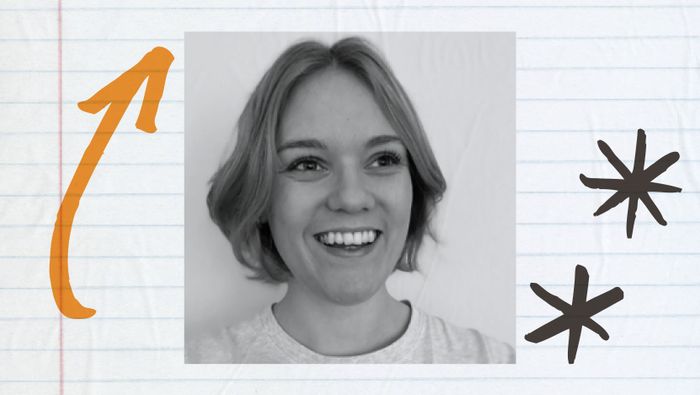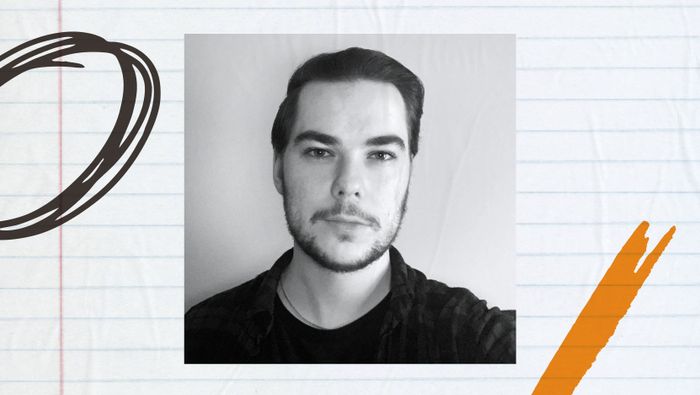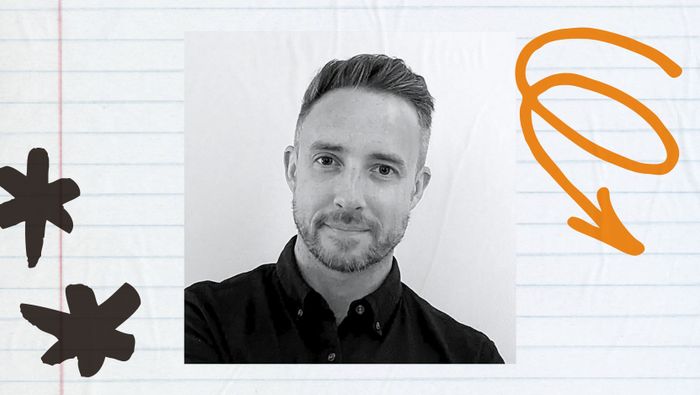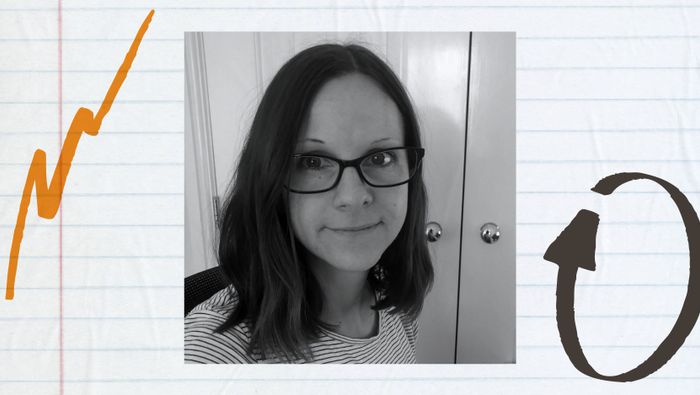Allyship at work beyond Pride month
How to sustain support for the LGBTQ+ community – with views from ThirtyThree colleagues.

- 7 minute read
- DE&I
There is a mismatch between the progress organisations think they’ve made toward empowering workplace cultures and how supported the lesbian, gay, bisexual, transgender, or queer (LGBTQ+) community feel. A 2020 survey by Accenture found that one in four LGBTQ+ employees in the UK remain “in the closet” at work and while 68% of leaders think they have a supportive environment where staff can be themselves, only 14% of LGBTQ+ employees feel they can be open about their identity at work.
This should raise alarm bells for organisations, particularly those heavily investing in diversity, equity, and inclusion (DE&I) initiatives. We must understand what’s undermining these efforts and how to prevent and stop instances of discrimination and physical and verbal attacks on LGBTQ+ employees by colleagues and customers.
Yes, the fundamental policies and practices need to be in place such as LGBTQ+ specific discrimination and harassment procedures, and training and guidance for leaders and managers, but sustained culture change takes every single person within the organisation.
More than two-thirds of the LGBTQ+ community believe the support of non-LGBTQ+ allies improves their enjoyment of work. But what does ‘being a good ally’ mean to LGBTQ+ employees? And how do you put it into daily practice?
We asked individuals at ThirtyThree who identify with or support the LGBTQ+ community to share their perspectives on what allyship means to them and how best to support colleagues at work. Read on for their advice.
Why LGBTQ+ diversity and inclusion in the workplace matters
Creating LGBTQ+ inclusion isn’t just the right thing to do – ensuring every employee feels safe, respected and their contributions valued – it’s increasingly a powerful brand differentiator, boosting market share, talent attraction, and performance. Employers that commit beyond performative measures have the potential to tap into the global LGBTQ+ consumer market estimated at more than $5 trn a year. Equally, clear internal support gives employer brands an edge in talent attraction and retention.
Attract top talent
In today’s competitive recruitment market, employers need to work hard to attract the best candidates. More than 80% of LGBTQ+ and non-LGBTQ+ millennials say that employers’ DE&I policies are an important factor when deciding on a potential employer.
In ten years, we can expect this number to be even higher when the next generation of talent enters the workforce. This generation are the queerest to date and are already redefining the conversation around gender and gender parity. Nearly 30% of Gen Z identify as something other than straight, according to Stonewall's 'Rainbow Britain' report.
The report also found that Gen Z and millennials are the age groups most likely to be trans and have close connections with trans people. Some 4% of Gen Z and millennials said they identify as trans, while 14% of Gen Z and 11% of millennials have family and friends who are trans.
30%
of Gen Z identify as something other than straight
Source: Stonewall
This is reinforced by recent census data which asked people for the first time about their sexual orientation and gender identity. The census shows Gen Z are more open about being trans than any other generation before.
Increase productivity and performance
When you can be yourself at work you feel 'psychologically safe'. And feeling comfortable means you can take more risks, speak out and solve problems better.
Research demonstrates that the teams with the highest levels of psychological safety perform the best. But as already pointed out above, just a quarter of LGBTQ+ employees have come out at work, and less than one-fifth feel comfortable doing so.
This is a huge missed opportunity. According to PWC, more than 60% of LGBTQ+ employees believe that being out at work has improved their ability to do business and engage with customers. And nearly 90% of employers believe supporting the LGBTQ+ community has helped them gain a better understanding of customer demands.
How to be a good ally to the LGBTQ+ community at work
Many employers are undervaluing the importance of the LGBTQ+ community both as a talent pool and a consumer market. It’s only when Pride rears around that they start thinking about their communications and check their list of basic policies – side note, Pride is not the only date in the LGBTQ+ calendar.
The only true measure of success is whether individuals feel they can bring their whole selves to work and fully participate without fear of judgement, harassment, or discrimination. And having a workforce of allies provides the best foundation for success.
Here’s what colleagues at ThirtyThree recommend for individuals and organisations that want to show their support beyond wearing a rainbow badge.

Use your privilege to advocate and challenge
Savannah Fox – Associate Consultant – Brand and Insights
"To be an ally to the community, it means that you take on board our perspective and not being dismissive of anybody's point of view just because you haven't experienced it.
If you're straight or cisgender, being allied with the gay community means you come from a position of privilege where your opinions are more accepted in wider society. So being a good ally means that you can use your platform to help give us a voice.
It’s also about calling out the bad behaviours when they happen. So even if I'm not there, I still expect a good ally would step up and call that out. Much like calling out people when they're being misogynistic or racist.”

Acknowledge less visible identities and give them a platform
Joanna Drury – Senior Communications Consultant
“For me, being a good ally for the LGBTQ+ community means making a conscious effort to understand the right words to use. Stonewall’s list of LGBTQ+ terms is particularly helpful for this, and anyone who wants to improve their understanding of the community should have a read!
It’s also important to be aware that, in any room you’re in, there may be people who aren’t out yet, or are still questioning. Being inclusive means not making assumptions about someone’s identity and creating an environment that makes it easier for people to share their experiences – whatever they might be.
Finally, if you’re writing about – or for – the LGBTQ+ community, remember to give less visible identities a platform. Being a good ally means giving a voice to everyone in the LGBTQ+ umbrella, including people who are bisexual, pansexual, asexual, or transgender.”

Be accepting and supportive of the whole community
Jack Goodfield – Senior Social Media Executive
“The community is so diverse, but sometimes you see it’s easier for people to show up and support certain areas because it's more acceptable for them. There are minority groups within the minority group. The experiences of white gay men will be very different from Black trans women, for example.
Being an ally is being inclusive of all members of the community. Especially now, with the way the media speaks about trans people, it's more important than ever that people speak up and challenge. Or educate themselves, so they can educate others.
It’s also recognising that we’re people too and that our lives rely very heavily on other people's acceptance. So, if someone comes out to you at work or shares their experience, keeping that information to yourself is being an ally by showing you’re a safe person.”

Find commonalities and respect differences
Richard Williams – Head of Client Services, USA
"Good allyship is a combination of finding and embracing the things we have in common, while respecting the things that make us different. We’re lucky to enjoy a very open and welcoming culture at ThirtyThree but we must remain conscious that it’s an increasingly polarized world and our people may sometimes find themselves in situations where they need more active support.
As an international consultancy, we work with clients in all sorts of industries in really diverse locations. Most of the time, that presents wonderful opportunities for all our employees, but there are definitely occasions when I feel a duty of care to consider the psychological – and even physical – safety of LGBTQ+ identifying team members before putting them in a situation that might be very culturally different to their everyday experience.
Some of the most uncomfortable and tricky situations I’ve had to navigate as a gay professional are when people I’m meeting assume I’m straight. For instance, they might notice my wedding ring and ask about my wife (which I recognize is intended as a friendly gesture), forcing me to make micro-second decisions about whether it’s more prudent to explain that I actually have a husband - risking social awkwardness or prejudice - or to let it slide for the sake of what I’m trying to achieve and feeling like I’ve let myself down by popping back inside the closet. Constantly having to “come out” is tiring and distancing.
To me, real marks of allyship are remembering not to assume anything, recognizing the plurality of experiences we all face, and celebrating what brings us closer together.”

Stand up for what’s right, regardless of its impact on you
Sian Wadsworth – Senior Copywriter
“I think we can learn from the way that people talk about allyship with the Black community and Black Lives Matter. While events might not impact you directly, you do have the power to change things. Your voice can make a big difference.
Allyship is about standing up for something, even when it’s not about you. You are saying, you know what, that's wrong and we need to do things differently.
Sometimes I don't like the word ‘ally’ because it's almost like you need to associate yourself with something, and I think that can make people feel uncomfortable or like they need to be the perfect ally. Really, it's just about believing that somebody should be treated a certain way and doing your best to encourage that. Everybody is human at the end of the day, and we should all be treated with the same respect.”
Start creating a culture of allyship
If you need help starting conversations about LGBTQ+ inclusion, work with us – diversity@thirtythree.co.uk – to create comms that inspire real change. From copy and art direction to social, digital and film, our experts are here to help you build a sense of belonging – in the right way.
Sign up now
Sign-up for our newsletter to receive a round-up of the latest insights and future events about employer branding, DE&I, and the world of work from the creative minds at ThirtyThree.






